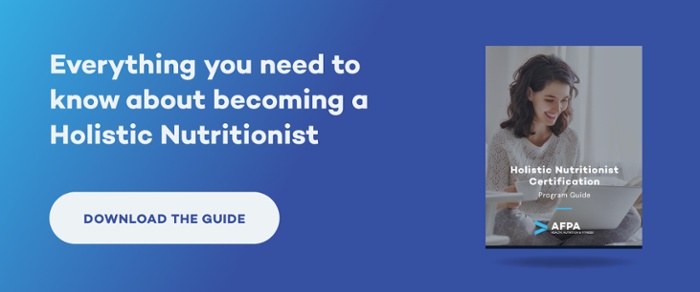Controversy and Confusion of Supplement Use
Health and wellness practitioners have differing opinions on how to best utilize, or whether to utilize, supplements in a health practice. Some see supplements as an ally to achieving health and fitness goals, while others feel that we should focus solely on diet and exercise before considering integrating supplements into a protocol.
This ongoing debate, which the supplement and holistic health industries both strongly influence, isn’t as straightforward as most make it out to be.
The extensive range of supplement types available, potential interactions, contradicting research, and effective versus dangerous applications of supplements are all things you need to consider before recommending a supplement or taking one yourself.
Before we go into the details about what you should consider before taking a supplement, let’s take a moment to discuss what supplements are.
What are Supplements?
When most people think of supplements, they probably think of pills or powders and the idea that supplements provide nutrients that we don’t get through our diets.
While this is true, supplements do not only provide vitamins and minerals. Some supplements provide bioactive components that are neither macronutrients nor micronutrients but contain chemicals (both natural and manufactured) that may impact how the body’s cells and organs function.
The FDA definition of a supplement is as follows:
The law defines dietary supplements in part as products taken by mouth that contain a “dietary ingredient.” Dietary ingredients include vitamins, minerals, amino acids, and herbs or botanicals, as well as other substances that can be used to supplement the diet.
There are many ways to categorize supplements, including by function or purpose. While there is no global consensus on categorization, we’ve identified five categories (by ingredient) for our purposes:
- Vitamin and mineral products: These include single or combination vitamins and minerals. Multivitamins fall into this category. They can provide anywhere from a fraction of your nutrient needs for a specific vitamin or mineral to thousands of times the Reference Daily Intake (RDI) (mega-doses).
- Herbs and botanicals: These include or come from plant materials, algae, or fungi. Sometimes, they are treated as two different categories of supplements. Botanicals are plants or plant parts that are consumed for medicinal or therapeutic properties. Herbs are a subset of botanicals and usually refer to the entire leaf or flowering parts of plants.
- Macronutrient and macronutrient building blocks: This category includes amino acids (protein building blocks), proteins, fatty acids, and prebiotics. Some examples are omega-3 fatty acids and taurine or branched-chain amino acids (BCAAS).
- Enzyme supplements: These are types of complex proteins that trigger biochemical reactions.
- Probiotics: These are viable bacteria or yeasts that provide a health benefit — typically a benefit to the gastrointestinal system.
It’s important to note that some supplement formulations contain various ingredients and may fall into multiple categories.
Become a Certified Holistic Nutritionist Online in 6 Months or Less
Can Health, Nutrition, and Fitness Coaches Recommend and Sell Supplements?
Nutrition practice regulations vary by state, but health, nutrition, and fitness coaches can recommend and sell supplements in most states. Check out this chart to learn about the specific regulations for your state.
Regardless of your legal scope of practice, it is vital to recommend supplements responsibly. You can do this by:
- Making sure you are familiar with the supplements, drug interactions, dosages, safety, quality, and the research behind their efficacy.
- Recommending that clients check with their physicians first since they may not disclose all health information to you.
- Being prepared to educate clients, ideally providing them with written resources and information on the supplements.
While this list is a good starting place, there are other things to consider before determining if a supplement is beneficial or necessary in the first place.
Things to Consider Before Taking or Recommending a Supplement
Before taking or recommending a supplement to a client, consider the following:
Mega-doses are Not Always Ideal
Mega-doses are doses many times larger than the Reference Daily Intake (RDI) recommended for that vitamin or mineral. Many supplements that provide only one or a combination of just a few vitamins provide mega-doses.
Minerals are inorganic compounds required by the body in small amounts, but they can be toxic in large amounts. Mega-doses of these nutrients should generally be avoided except for therapeutic purposes, as indicated by a doctor.
People commonly take some vitamins in mega-doses, like vitamins C and E, believing that they offer immune-boosting effects. In general, evidence has shown that supplement mega-doses of vitamin C do not reduce the duration of the common cold and supplement mega-doses of vitamin E do not provide benefits to heart health beyond those provided by recommended amounts.
It is crucial to keep in mind whether vitamins are water-soluble or fat-soluble. Water-soluble vitamins are easily removed from the body in your urine, so if you take more than you need, your kidneys can filter them out. Fat-soluble vitamins (A, D, E, and K) are stored in the liver and are not as easily removed from the body as water-soluble vitamins. This makes taking mega-doses of fat-soluble vitamins over long periods of time potentially dangerous to your health.
In summary, mega-doses of vitamins and minerals are generally not required and can be dangerous to your health. Mega-doses of vitamins and minerals should only be taken for therapeutic purposes as recommended and supervised by a doctor or licensed nutritionist.
Many Supplements Have Negative Interactions with Medications
Several supplements can have a negative interaction with medications such as reducing effectiveness or increasing efficiency.
While this is the case for several categories of supplements, it is most common with herbal and botanical supplements.
Since many herbal and botanical supplements have similar effects as medicines, they can increase the impact or block the effect, depending on the mechanism of action. For example, a study published in the Journal of Evidence-Based Complementary and Alternative Medicine identified 38 herbs that interact with Warfarin, a common blood-thinning drug.
Additionally, St. John’s Wort, an herb used for improving sleep and mood, among other things, is the supplement that has the most documented interactions with drugs.
With the growing body of evidence that points toward supplement-drug interactions, it is essential to remember that plants, though “natural,” contain chemical components that can potentially have strong interactions with the body’s function.
Supplements Might Not Be Necessary
Generally speaking, everyone should be able to get all the nutrients needed through diet. The purpose of a balanced diet is to ensure that you get the right nutrients in the right amounts, and deficiencies can be avoided with proper nutrition.
Keeping that in mind, many people in the US do have some form of nutrient deficiency. The most common deficiencies in adults are vitamin B6, iron, vitamin D, vitamin C, and vitamin B12. Some of these deficiencies have severe implications for public health. If needs cannot be met through diet, then supplementation is appropriate.
Consider the Quality
Not all supplements are created equal. The quality of the supplement can have a significant impact on its effectiveness in the body and contribution to health. Some of the elements to consider in identifying high-quality supplements include:
- Bioactive form: Iron supplements, for example, should be in the form of “heme” iron, which is more effectively absorbed. Vitamin D should be in the D3 form since this is the form that has a role in calcium absorption.
- Elimination of heavy metals: This is relevant for DHA omega-3 and other fish-derived supplements, as some sources of omega-3 are high in mercury, which is toxic in large amounts.
- Are certified by a third-party laboratory: These ensure that supplements follow the FDA’s Good Manufacturing Practices and contain the amount of the active ingredient stated on the label.
Evidence-Based Effectiveness
By looking at evidence-based effectiveness, you will be able to answer the question, “does X supplement really work?”
While many traditional supplements and medicines have yet to receive the research necessary to demonstrate their effectiveness, it is essential to have scientific evidence that shows the efficacy of each supplement you recommend or consider taking. In addition to independent studies, look for meta-analyses and systematic reviews of the effects and safety for the claims of each supplement.
Dosages May Make a Big Difference
After asking the question, “does it work?” it is important to look at how much a person needs to take to potentially see effects and stay within safe parameters. One company that independently compiles evidence and reports on the effectiveness, in addition to comparing effective dosages, is Examine.
How Are Dietary Supplements Regulated?
The US Food and Drug Administration (FDA) is the government entity responsible for protecting public health by ensuring the safety, efficacy, and security of drugs, medical devices, and cosmetics while also ensuring the safety of the US food supply.
The FDA says this about dietary supplements:
Dietary supplements are regulated by the FDA as food, not as drugs. However, many dietary supplements contain ingredients that have strong biological effects, which may conflict with a medicine you are taking or a medical condition you may have. Products containing hidden drugs are also sometimes falsely marketed as dietary supplements, putting consumers at even greater risk. For these reasons, it is important to consult with a healthcare professional before using any dietary supplement.
The FDA does NOT have the authority to approve dietary supplements for safety and effectiveness, or to approve their labeling, before the supplements are sold to the public.
Under the FD&C Act, it is the responsibility of dietary supplement companies to ensure their products meet the safety standards for dietary supplements and are not otherwise in violation of the law.
Dietary supplement labels are required to have nutrition information in the form of a Supplement Facts label that includes the serving size, the number of servings per container, a listing of all dietary ingredients in the product, and the amount per serving of those ingredients. They also must have a statement on the front of the product identifying it as a “dietary supplement” or similar descriptive term (e.g., “herbal supplement” or “calcium supplement”).
In other words, the FDA oversees the safety and efficacy of dietary supplements to a limited extent. While supplement companies must be careful about the claims for which their products are marketed (they cannot claim to cure or to treat conditions, for example), it is up to the consumer to choose whether to take a dietary supplement or not.
Additionally, note that all supplements in the US are available without a prescription and can be purchased over the counter, making the potential for supplement misuse a real possibility.
In the EU, food supplements (they are not called dietary supplements) are also regulated as food, but there is arguably closer scrutiny about certain ingredients.
The Role of a Health and Wellness Professional in Recommending Supplements
Whether you choose to recommend supplements to your clients or not, you need to be informed about the advantages and risks of supplementation. As mentioned above, supplementing with a multivitamin is very different from supplementing with a macronutrient (like amino acids), a botanical, or an herb.
Before guiding each client toward or away from supplementation, it is essential to holistically examine their history and current health and fitness goals. Consider examining their diet along with any allergies or unusual eating patterns they may have, in addition to asking about any medications they are taking.
If you are unsure of potential interactions, do not hesitate to refer your client to a doctor or specialized nutritionist.
The key to overall health is a balanced diet rich in foods that naturally contain immune-boosting nutrients, healthy lifestyle choices, and regular exercise. In many cases, it is possible to get all your required nutrients from what you eat. However, some supplements contain components that aren’t regularly found in the diet and may offer research-backed benefits for concentration, energy levels, stress modulation, muscle building, and more. Other supplements may not be effective, may cause negative interactions with conditions or current medications, or may have unpleasant side effects.
It is important to remember that not all supplements are created equal, and many people regularly choose to integrate them into their health and wellness regimens. Staying up to date with current supplement trends and research will help you guide your clients better.




